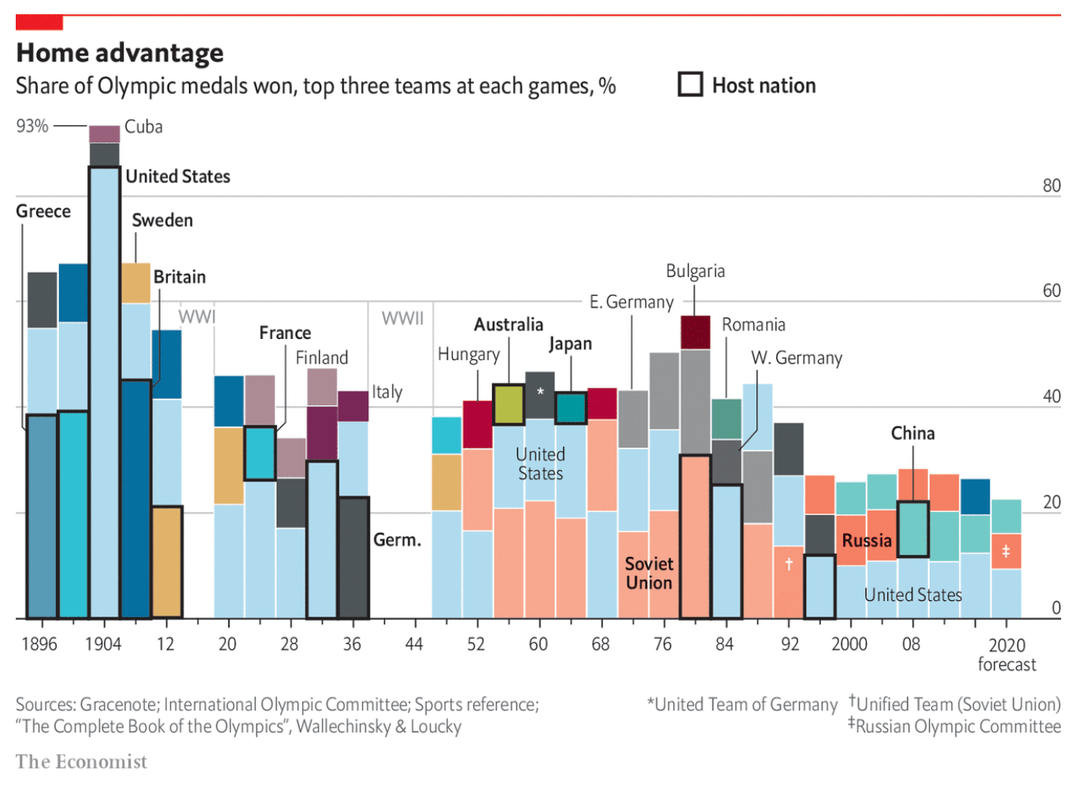

WHAT DOES an international team need to be successful at the Olympic games? Money and resources for talent identification and training, a big population for diversity of physical attributes and skills, and a culture that pushes people towards sports participation, are all sensible suggestions. At the 32nd Summer Olympics, which opened in Tokyo on July 23rd, America is expected to win the most medals—as it has done in the previous six Olympiads. But many of the teams that have been successful in the modern games have benefitted from two key elements: home advantage and favourable politics.
Since the first modern Olympic games in Athens in 1896, the country with home advantage has won the most medals ten times. These include the first five hosts, from 1896 to 1912, who found it much easier than other nations to get their athletes to participate. At the 1904 games in St Louis, Missouri, America won nearly 85% of the 280 medals available. At the time travel to the Midwest was laborious and Russia and Japan were at war in the Pacific. As a result American athletes represented about 80% of the total competitors that year.
Olympic results have also been affected by geopolitical ructions. Since the second world war the two most lopsided outcomes, in which one country dominated most heavily, were the triumph of the Soviet Union in 1980 and America in 1984. Again, both of these teams were at home, but the greater boost was conferred by a particularly intense period in the cold war, when domestic politics of each country led teams to boycott the other’s tournament. America, along with 64 other nations, refused to participate in Moscow in 1980. Four years later the Soviets and 13 of their allies declined to take part in the Los Angeles games. The absence of their biggest rival enabled the host to dominate. The Soviet medal tally jumped from 20% in 1976 to 31% in 1980; while America’s rose from 15% in 1976 to 25% in 1984.
It is unlikely that such dominance will ever be repeated. Contemporary Olympic teams would now need to be exceptional across a much wider range of disciplines, from badminton to beach volleyball, surfing to sport climbing (this year’s two newest disciplines). The total number of medals has increased from 600 in 1972 to over 1,000 this year. Although China’s rise in the Olympic medals table has gone hand-in-hand with its economic growth, it is yet to win more medals than America. Gracenote, a sports analytics company, thinks that Team USA will win 96 medals this year and China 66. Japan, it thinks, will use its home advantage to win 61 medals, compared with 41 for 2016.
Comments are closed.
